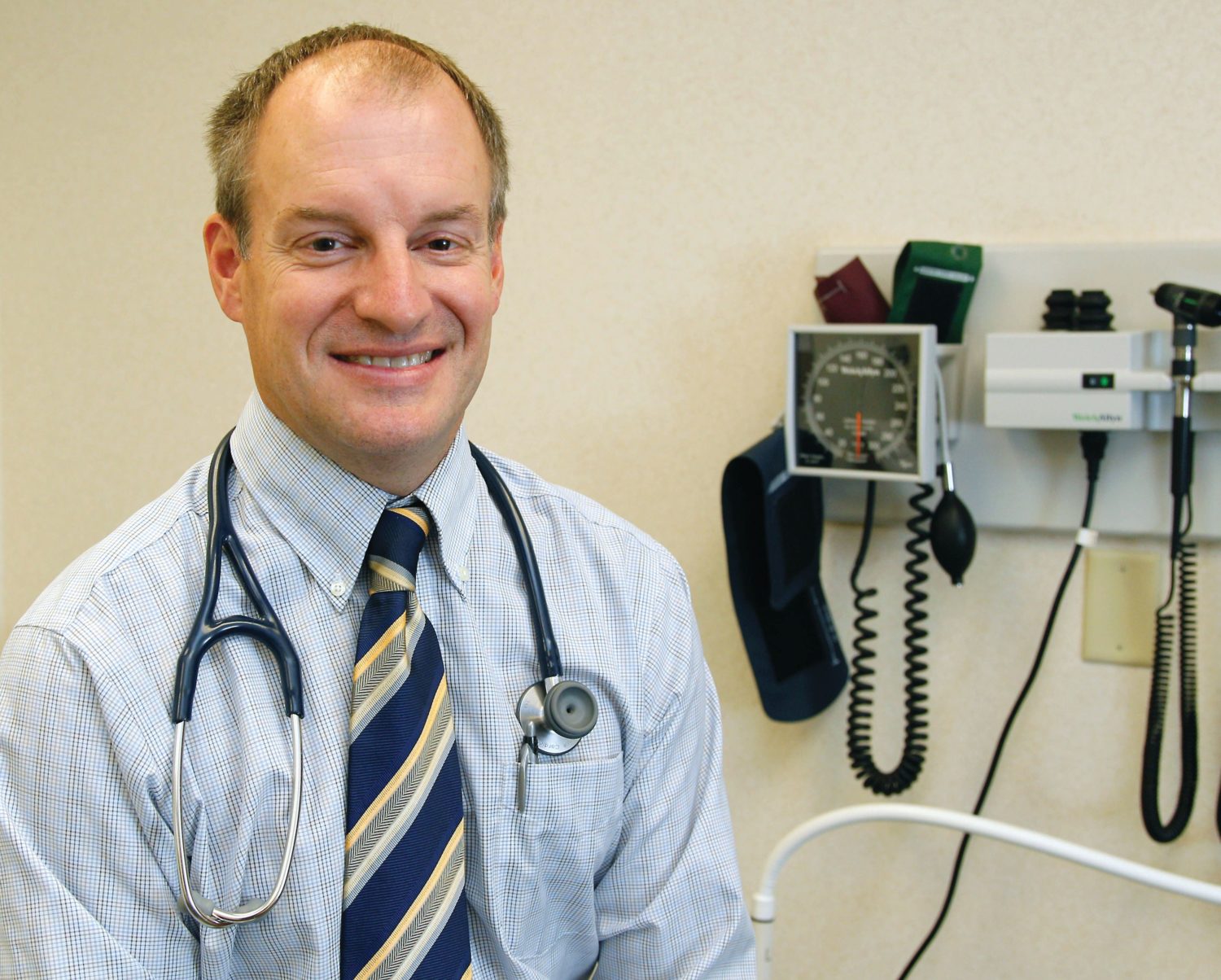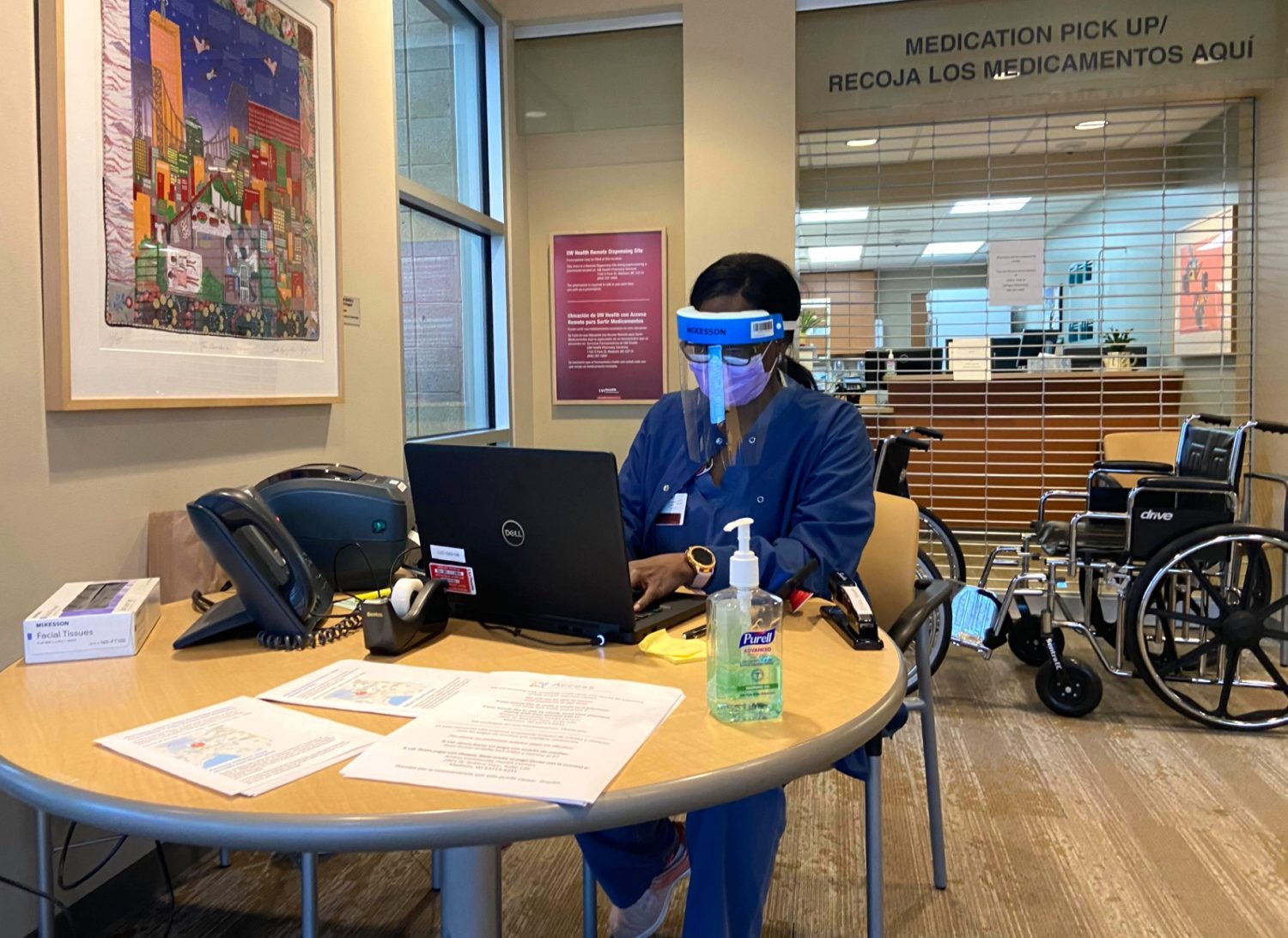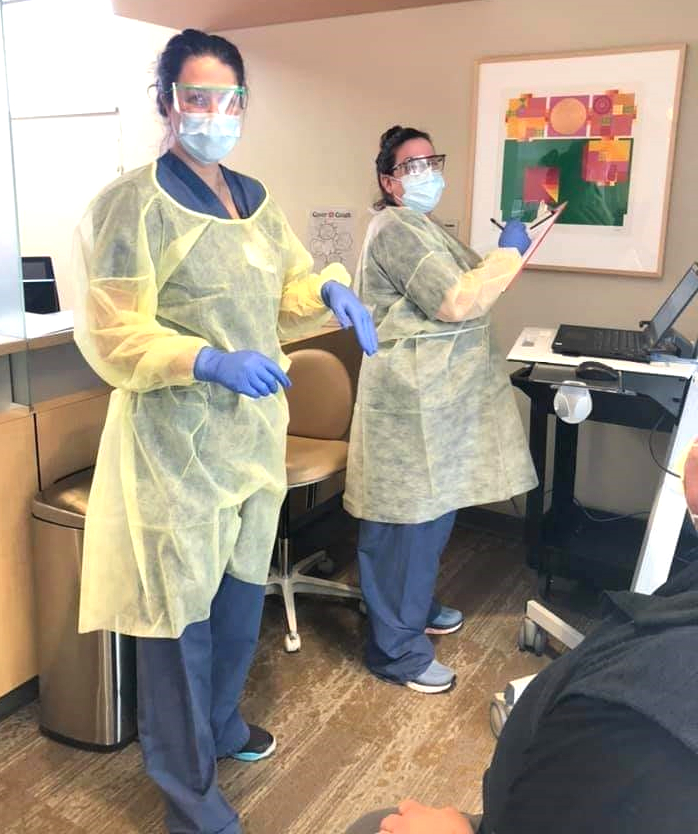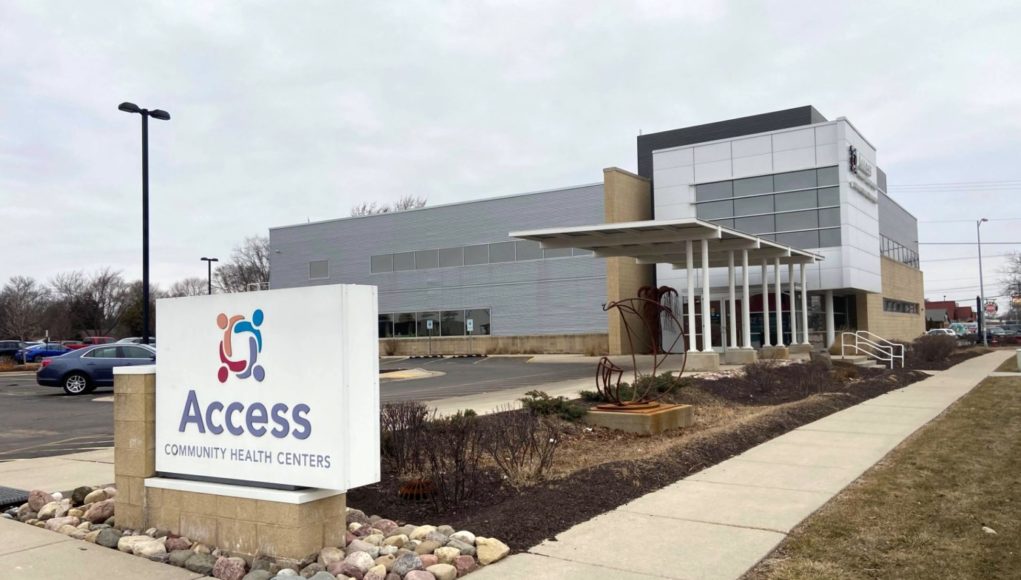For Access Community Health Centers, a non-profit health center headquartered here in Madison that is unique in that it removes the barriers its patients may experience and offers them quality care regardless of their ability to pay, it’s been a very long and tasking month since the coronavirus pandemic has wreaked havoc on the United States, making things particularly rough for hospitals and clinics.
But it’s also been very uplifting.
“It’s been inspiring to see our staff rise to this. I admire their commitment to the patients and the way they have innovated and the way that they have selflessly stepped up to do work differently and more effectively for people in a time where everybody is anxious and scared … including health care workers,” Dr. Ken Loving, Access’ Chief Executive Officer, tells Madison365. “I can’t say enough about how people have just risen to the occasion.”

When most of the United States began shutting down in mid-March due to the coronavirus pandemic, Access immediately had to get creative and implement a new model of care to meet the current needs of its patients. This meant adhering to social distancing, prevention of the spread of COVID-19 and keeping its staff safe and financially secure.
“The first weekend was pretty intense where we just huddled – pretty much the whole weekend – and redesigned how we were going to provide care because we recognized that we couldn’t bring people with any kind or respiratory symptoms or fever down into any of our general clinics,” Loving says. “So, on Monday, March 16, we basically converted our Joyce Marshal Erdmann Clinic on S. Park Street into a respiratory clinic.”
The Joyce & Marshall Erdman Clinic is located in the Village on Park site in the heart of Madison’s south side near other social service agencies like the Urban League of Greater Madison, Boys and Girls Club of Dane County, Centro Hispano, Omega School, Catholic Multicultural Center, Literacy Network, Madison-area Urban Ministry and much more.
Access began to take patients at that location with respiratory problems or fever and centralized all their Personal Protective Equipment (PPE) over there and quickly got staff in place.
“We made sure that we had it designed in a way that was really safest for staff, safest for the patients that were coming there. And we started doing testing of COVID-19 when it was indicated on that Tuesday,” Loving says. “It was basically in one day we completely transformed that clinic.”
Access never wants to restrict care anywhere, Loving says, so they made sure that William T. Evjue Clinic on E. Washington Ave. became the essential care clinic. That meant that patients on the south side would have to make their way over to the east side.

“It was a little confusing for the first week because people would go one place where they’d expect to be seen and they would wind up at the other in some cases,” Loving says. “But we did have a mechanism to do that – we were able to cab people to the place they needed to be.”
The other thing that Access Community Health Centers did was stop providing dental services at the Erdman Clinic on S. Park St. and they moved all of their essential dental care over to the Evjue Clinic.
“In retrospect, we looked at the numbers and our number of dental appointments dropped by 90 percent and the number of medical appointments dropped by 65 percent,” Loving says.
Access Community Health Centers has been providing medical, dental, behavioral health care and pharmacy services for our community since 1982 and are one of more than 1,400 non-profits, Federally Qualified Health Centers (FQHC) providing care to more than 25 million people across the United States. As a non-profit that gets reimbursed for the patients it sees, it’s a bit of a financially stressing time for Access right now.
“The way that we get paid through Medicaid, which is sort of our financial lifeblood, is face-to-face encounters. So you can imagine that hasn’t helped our revenue,” Loving says. “We’re in the same boat as other organizations. However, we’ve managed our business responsibly and do have some reserves to get through this and there are some opportunities that we do our best to take advantage of as time goes on.”
Community members can support the work Access is doing during the COVID-19 pandemic by clicking here.
Loving says that there is a large percentage of Access staff who are paid leave right now and that Access has figured out how more of their staff could work remotely.

“It’s really difficult for many of our staff to suddenly be at home all of the time which is something a lot of people are experiencing right now,” he says. “What we are trying to do – and I’m optimistic that we will be able to do this – is keep all of our staff on and getting their paychecks, benefits and health insurance through the pandemic.”
Access is frequently using Telehealth, which provides patients the opportunity to discuss patient symptoms or concerns over the telephone and gives patients and providers the ability to evaluate immediate concerns and to follow up on chronic or already known conditions. Telehealth is very important during a pandemic since it connects patients to their primary care provider where chronic or acute conditions can be discussed and evaluated.
“We have this model of behavioral health care,” Loving says. “It’s an integrated model when we’re actually in the clinics doing face-to-face stuff so if I’m seeing somebody with that I’m concerned has a substance use disorder or severe depression, I can bring a psychologist right in during the moment. We’re still doing that with our Telehealth.
“I talked to a couple of people last week and people are obviously anxious at this point and people that have behavioral or mental health problems, they are often exacerbated by this type of stress. So I do Telehealth visits and then send messages to behavioral health people who then call the people after I’m finished. The demand for their services is really ramping up.”
Having this immediate connection of Telehealth can also hopefully alleviate any influx to the emergency care system and reduce urgent care or emergency room visits.
“You know, people are so happy to be able to talk with us and ask all of their questions and kind of talk through how difficult this all is,” Loving says. “But then we can also check in on their diabetes and their chronic conditions and advise them over the phone. It’s not ideal but it’s the best we can do right now.”
Amid the pandemic, Access is still taking new patients as their schedule allows. Access also works with a community resource specialist to help patients out.
“They are able to screen people to see if there are any potential benefits they might qualify for. So they will look to see if there are some possibilities to sign up for BadgerCare or a marketplace insurance plan,” Loving says. “We actually had success on a recent afternoon when six people called in and we got three of them connected with Badgercare … one of them got signed up the same day.”
The Access Patient Resources team is available to help patients who may be experiencing hardship during this extraordinary time by connecting patients to the resources they may need – including housing referrals and food assistance, employment guidance and affordable health care counseling.
Access usually has a sliding discount program for people who are uninsured. Those tiers have been eliminated.
“Normally there are certain tiers that go along with your income where if you make more money, you might pay more for your visit. We’ve eliminated those tiers during the pandemic so everybody is at the highest level of discount,” Loving says. “Similarly, we’ve eliminated the tiers in our pharmacy for uninsured patients. The most people will pay for 3 months supply of medication is $7.50 … and oftentimes they are paying less depending on the medication.”
The new normal that the coronavirus pandemic has brought on has been tiring and taxing on everybody. Access is having the struggles that all hospital clinics are having right now – like securing the proper PPE and protecting staff and employees. Loving is confident that Access will get through this with their staff intact and the community served.
“What we’re doing is making a long-term commitment to our patients and our community that we are going to be there for them during this and for the long term so we’re spending a lot of time analyzing the different federal programs that are out there and different opportunities to make sure that our workforce stays intact,” Loving says.
“One of the great things about working at Access is that we share this common belief that our patients oftentimes can’t get this care anywhere else and we’re going to be there for them because they need to get the same standard of care that anyone gets in our community,” he adds.




























